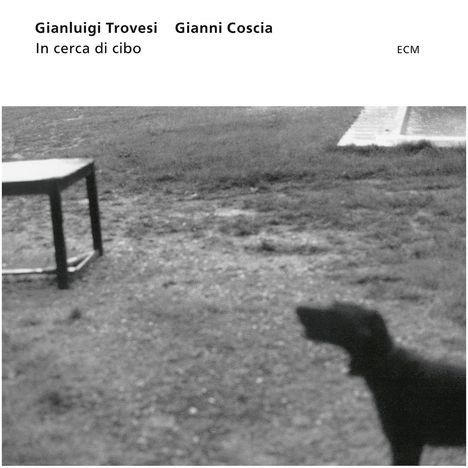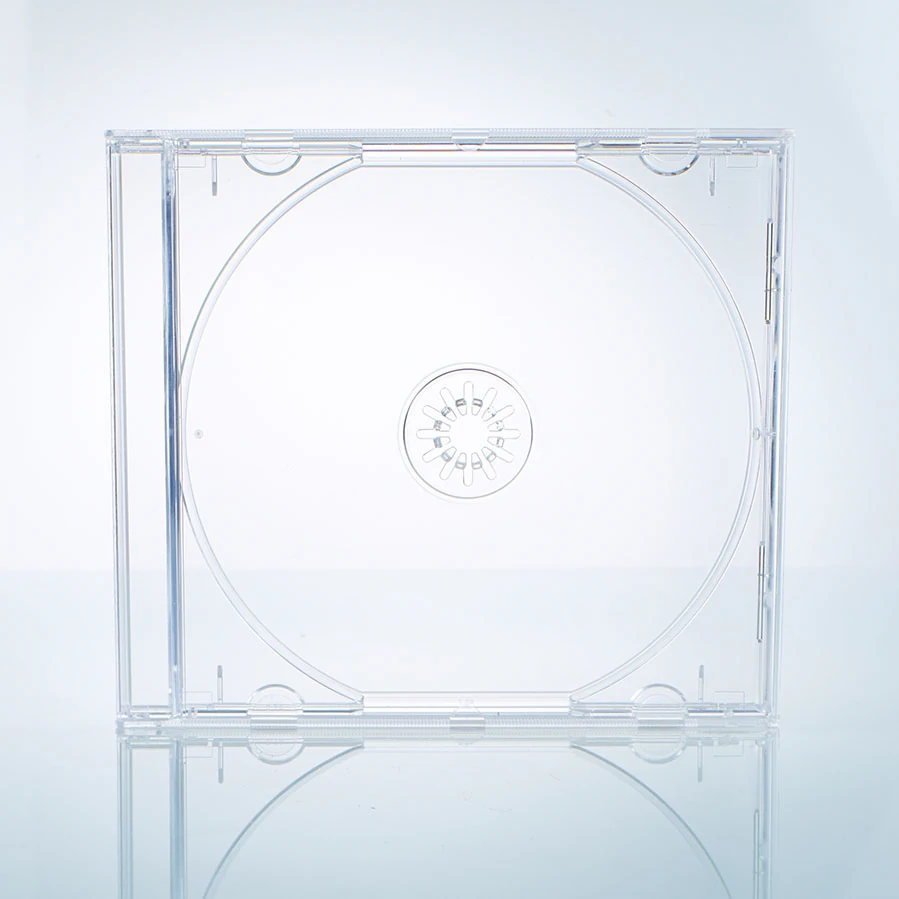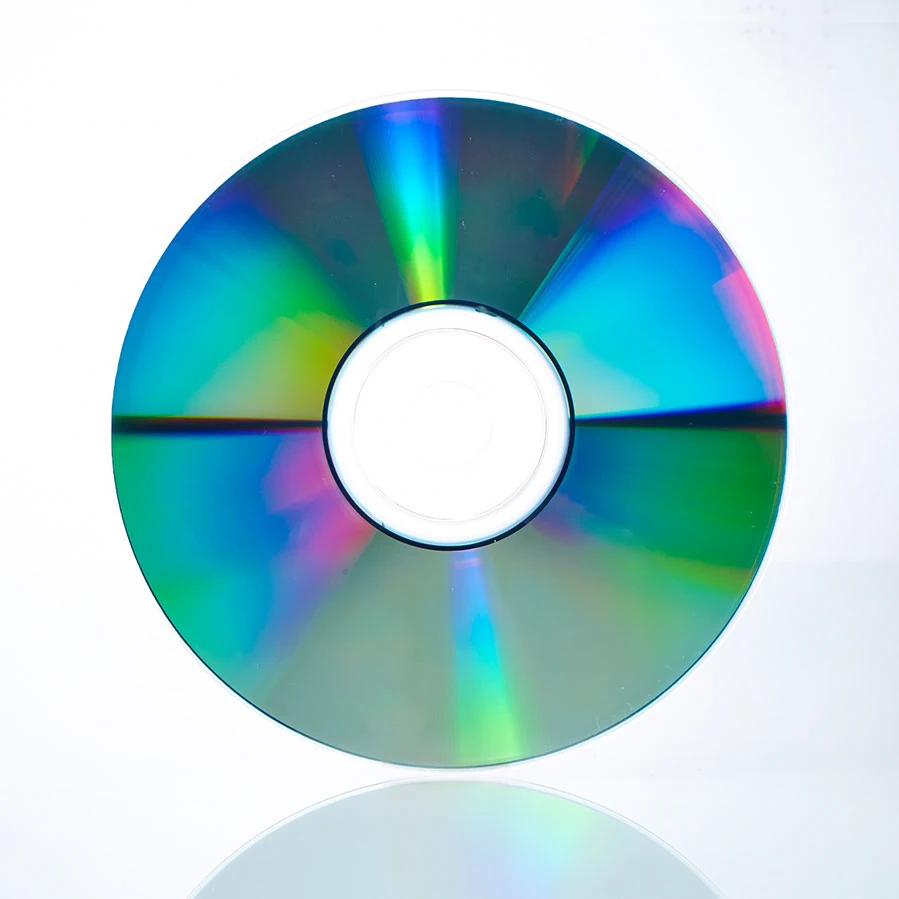Gianluigi Trovesi & Gianni Coscia: In Cerca Di Cibo auf CD
In Cerca Di Cibo
Herkömmliche CD, die mit allen CD-Playern und Computerlaufwerken, aber auch mit den meisten SACD- oder Multiplayern abspielbar ist.
- Label:
- ECM
- Aufnahmejahr ca.:
- 1999
- Artikelnummer:
- 2279631
- UPC/EAN:
- 0731454303422
- Erscheinungstermin:
- 11.4.2000
Product Information
Umberto Eco, in his liner notes written especially for this ECM album, writes warmly of the way in which the accordion of Gianni Coscia gave him, in Italy of the 1950s, his initiation into the world of jazz, and continues, “I followed Coscia’s maturing talent up to his meeting with Trovesi and I find that there is now something particular about their experimentation, which is no longer the jazz of the early days but it’s not an attempt to get Armstrong into Carnegie Hall either.”
Here, Eco argues, “we are in the presence of a new transversality where distinctions of genre are van-ishing, while a certain attention is being paid (and this is something new) to Italian folk music...In [their] play of references to different texts and traditions, they occasionally arouse systems of expectations within the listener that they suddenly frustrate, by changing the rules of the game. Which is one of the characteristics of experiments, a characteristic assumed in this case without foregoing something that experimental music often foregoes, that is to say pleasure.” Indeed: the pieces on “In cerca di cibo” work on more than one level, but the most immediate quality the music conveys is the affection that the players share in it.
Gianluigi Trovesi and Gianni Coscia have travelled, individually, through many musical idioms, but “In cerca di cibo” is firstly a celebration of roots, of “radici”. Trovesi and Coscia are old friends, from towns on either side of Milan – Trovesi from Nembro and Coscia from Alessandria (also Eco’s hometown) – and the music they play in duo reexamines the sounds that were in the air back then. It is music filtered through memory and nostalgia as well as through the worldly wisdom acquired along the way. Sometimes it is deeply sentimental, sometimes a cheerful irony comes into play. In this soundscape the Modern Jazz Quartet’s “Django” is brought back to its European folk roots. Pieces by Milanese composer Fiorenzo Carpi (1918-1997) – including fragments of his score for Luigi Comencini’s “Le Avventure di Pinocchio” (with Gina Lollobrigida in a leading role) – rub shoulders with the slinky tango “El Choclo” which Astor Piazzolla liked to play but which, in the present treat-ment, finds an almost Klezmeresque flourish in Trovesi’s yearning clarinet, as well as a piece by Ennio Morricone’s protege Luis Bacalov, the Argentinian born soundtrack writer best known for his filmscore contributions to the “Spaghetti Western” genre (including a quite different “Django”). The themes of Carpi, who was also associated with the political theatre of Dario Fo and Giorgio Strehler (long-reigning director at the Piccolo Teatro Milano) have a special resonance for the clarinettist and accordionist. Beneath its often simple surfaces, then, this music is densely-packed with cultural cross-references.
Long regarded as a musician’s musician, Gianluigi Trovesi has been finding a wider audience inside and beyond the borders of Italy in recent years. Arguably the most gifted soloist in that fractious big band full of soloists, the Italian Instabile Orchestra (see “Skies Of Europe” ECM 1543), Trovesi has also been heard as the leader of his own ensembles, particularly an inspired octet that has been a regular presence on the festival circuit.
After a thorough classical grounding on the clarinet, Gianluigi Trovesi earned his living in the 1960s and early 70s playing almost every conceivable kind of music from dance bands to orchestral music to jazz ancient and modern. His soloistic brilliance was first showcased in the Giorgio Gaslini Quintet. Amongst his contemporaries, however, Trovesi was unusual in his conviction that a European jazzman had to make sense of his own geographical location, and in his trio, formed 1977, he explored the borderlines between Italian folk music and experimental jazz (in some ways his work in Italy paralleled that of John Surman in Britain).
From the 1980s onwards, he worked with a wide variety of leading international musicians, including Anthony Braxton, Lester Bowie, Misha Mengelberg, Kenny Wheeler, Steve Lacy, Barre Phillips, Evan Parker, Horace Tapscott, Louis Sclavis, Keith Tippett, Tony Oxley, Michel Portal and many others. He also formed several enduring alliances with musicians in Italy including Giancarlo Schiaffini, Pino Minafra, the Tiziano Tononi/ Daniele Cavallanti group Nexus, also working with Enrico Rava’s Electric Five.
Gianni Coscia, after completing classical high school studies, was a lawyer for many years, work that relegated music to the backburner. Even in this period however he played with visiting American musicians including Joe Venuti, Bud Freeman and Sir Charles Thompson. In 1985 he released a widely acclaimed album “L’altra fisharmonica” which featured his accordion in combination with a string quartet and explored variations on Italian popular themes. “La Briscola”, a 1989 recording, signalled a reunion with Trovesi, who has partnered the accordionist in many projects since then. Coscia has appeared with the Giorgio Gaslini Big Band and worked with orchestras playing music of Kurt Weill and Astor Piazzolla, and toured the world as accompanist to singer Milva, also working with Gioconda Cilio, Mariapia De Vito and Lucia Minetti. He has also collaborated with Enrico Rava, Pino Minfra, Paolo Damiani and other Italian improvisers.
In 1995, Trovesi and Coscia released their first duo album, “Radici”, on the small Italian Egea label. Confounding expectations for local “jazz”, it proved an immensely popular recording and has been reprinted six times. The communicative power of the duo’s music has also been very much in evidence at their concerts where they continue to bring down the house, as the saying goes, with their fluid, witty, trenchant music.
Umberto Eco points out, “The execution can be appreciated at a ‘high’ level, upon which the listener grasps the intertextual references, and at a ‘low level’, as music tout court, without being disturbed by artful or erudite references (...) This then is one way to add a popular dimension to cultivated music and a cultivated dimension to popular music. So there’s no need to wonder about in which temple we should place the music of Coscia and Trovesi. On a street corner, or in a concert hall, they would feel at home just the same.”
Pressestimmen:
Preis der deutschen Schallplattenkritik, Vierteljahresliste Stereoplay, CD des Monats
Die beiden italienischen Altmeister Gianluigi Trovesi, Klarinette, und Gianni Coscia, Akkordeon - zwei Freunde aus Kindheitstagen (sie sind beide in der Umgebung von Mailand aufgewachsen), finden in den 15 hier vorliegenden Duos zu einer wunderbaren, kammermusikalischen Übereinstimmung. … Trovesis Klarinetten ken- nen alle Gefühlsfacetten von vergnügtem Schnattern über weichen Schmelz bis zu tiefer (Klezmer-) Melancholie, und Coscia ist es gelungen, wie Umberto Eco in seinen Liner Notes treffend bemerkt, sein Instrument »den Tanzlokalen zu entziehen und den Freudenhäusern von New Orleans anzunähern«. Vor allem aber ist diese CD eine so behutsame wie hinreißende Feier der reichen Folklore von der Apenninhalbinsel. Matthias Inhoffen, Stereoplay
In der Kunst kann einer alles, vorausgesetzt, er kann es. Gianluigi Trovesi, zwischen Como und Catania Gottes und auch des Teufels liebster Klarinettist, Engelszunge und Satansbraten, und sein Bruder in allen Zonen zwischen Himmel und Hölle, der Akkordeonist Gianni Coscia, können fast alles. … Hier geht es nicht so sehr um Sublimierung und Entrückung als um vitale Bedürfnisse. Was Trovesi und Coscia spielen, ist in gewisser Hinsicht die ganze Welt - intelligent und sentimental, humorvoll und satirisch, raffiniert und natürlicher, als die Natur noch sein kann. … Sie sind - nur verbiesterte Arrièregardisten halten das für unvereinbar - Intellektuelle und Volksmusiker, was auch heißt, dass sie Populärmusik mit Lust spielen, sich über sie aber nicht lustig machen. Kurz: Dies ist eine CD, die, wer sie einmal gehört hat, so wenig mehr missen kann wie das tägliche Brot. Peter Rüedi, Die Weltwoche
Auf der Suche nach Futter (»In cerca di cibo«) haben Gianluigi Trovesi und Gianni Coscia Gold gefunden: eine Musik voller Erinnerung, eine Musik, die auf der Suche nach »Heimat« eine neue Heimat schafft, nicht das Gedudel jener Geldschneider, die den Begriff »Volksmusik« zerstört haben, sondern einen kunstvollen, intimen Dialog zweier virtuoser Musiker, die Einfachheit so wenig scheuen wie Expressivität. Sie wählen Themen, die ins Ohr gehen und doch komplex genug sind, ihre Improvisationen auf interessante Wege zu stoßen. Wenn wir für diese Musik den Namen »Jazz« brauchen (und sie hat all den Swing und die einfallsreichen Improvisationen, die großen Jazz immer ausgezeichnet haben), dann hat sie ihm eine neue ehrenvolle Wendung gegeben. Stephan Richter, Fono Forum
Man kann die Musik der beiden Grenzgänger des Jazz als ausgefuchstes intellektuelles Spiel voller Zitate aus Klassik, Volksmusik und Schlager wahrnehmen - oder man kann sich ihr hingeben, ohne etwas zu »entschlüsseln«. So oder so wird man entzückt sein von den Klangwelten, die Klarinette und Akkordeon herbeizaubern. Manfred Papst, Neue Zürcher Zeitung
Typisch für Musikanten ist, dass sie auf ihren Reisen allerlei Arten Musik zu hören bekommen und sich diese anverwandeln. Genau dies tun der Akkordeonist Gianni Coscia und der Klarinettist Gianluigi Trovesi, und ihre Spielfreude ist ebenso grenzenlos. … Nach ein paar verhaltenen Stücken wie der Titelmelodie von »Il postino« legen die beiden richtig los, verquicken den Jazzklassiker »Django« mit einer jüdischen Weise, interpretieren Melodien aus einem Pinocchio-Film und haben so das bisher musikantischste aller ECM-Alben eingespielt. Auf Nahrungssuche' Ein Festschmaus! Thomas Bodmer, Tages-Anzeiger
Rezensionen
M. Inhoffen in stereoplay 5/00: "Trovesis Klarinetten kennen alle Gefühlsfacetten von vergnügtem Schnattern über weichen Schmelz bis zu tiefer (Klezmer-)Melancholie, und Coscia ist es gelungen, wie Eco treffend bemerkt, sein Instrument "den Tanzlokalen zu entziehen und den Freudenhäusern von New Orleans anzunähen". Vor allem aber ist diese CD eine so behutsame wie hinreißen- de Feier der reichen Folklore von der Apenninhalbinsel. Toller Klang."Disk 1 von 1 (CD)
-
1 In Cerca Di Cibo
-
2 Geppetto
-
3 Villanella
-
4 Il Postino
-
5 Minor Dance
-
6 Pinocchio: In Groppa Al Tonno (Piano)
-
7 Django
-
8 Pinocchio: In Groppa Al Tonno (Forte)
-
9 Le Giostre Di Piazza Savona
-
10 Lucignolo
-
11 Tre Bimbi Di Campagna
-
12 Celebre Mazurka Alterata
-
13 Fata Turchina
-
14 El Choclo
-
15 In Cerca Di Cibo
Mehr von Gianluigi Trove...





